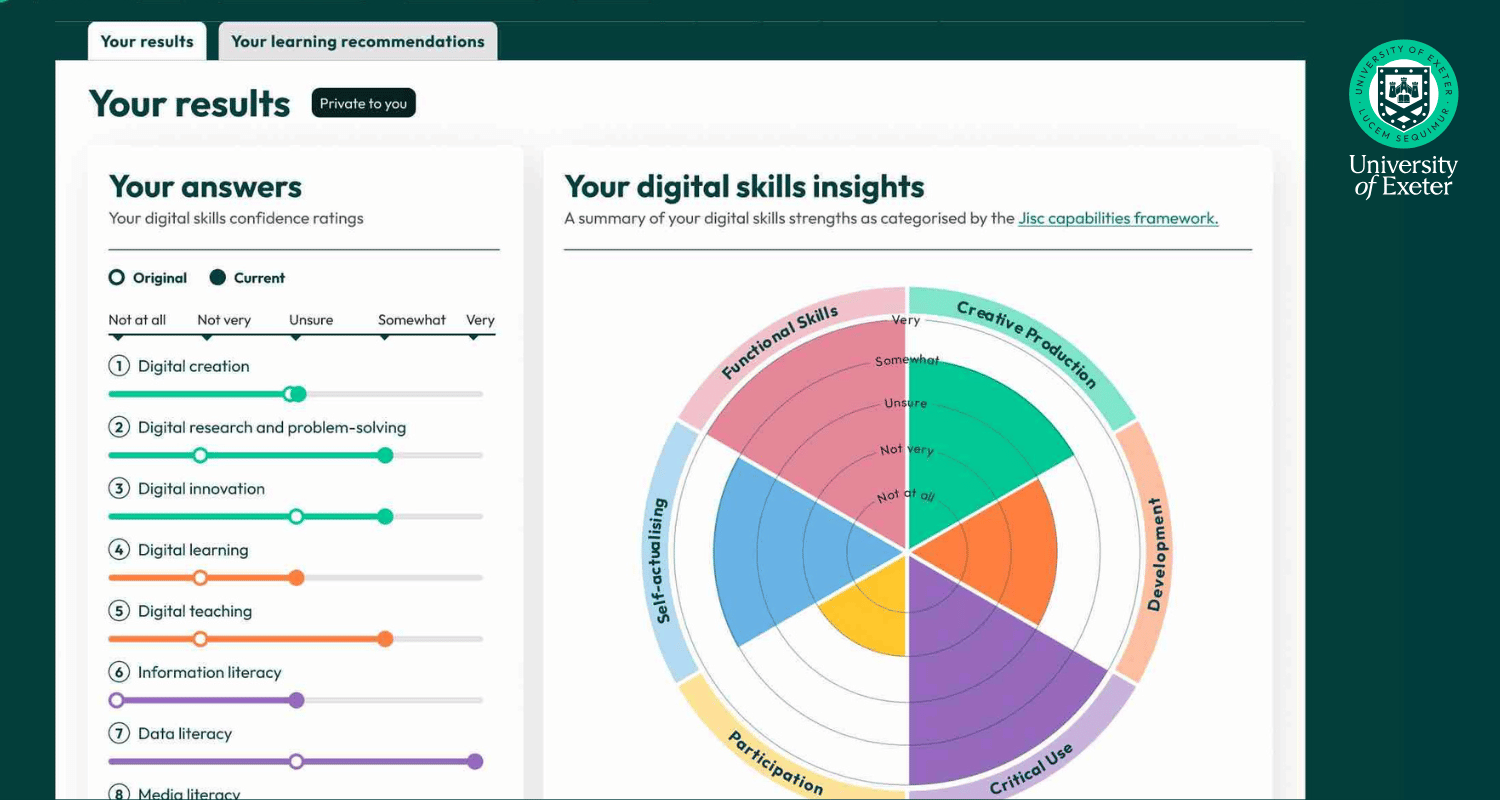Digital Innovation is one of the key pillars of the University’s Digital Strategy, and it is one of the reasons why the University’s Digital Skills Lead, Katie Steen, was asked to present at the recent Chartered Association of Business Schools (CABS) annual conference for Professional Managers.
Read this blog post to learn about how we are innovating through developing our own Digital Skills Initiative.
Presenting the University’s Digital Skills Initiative
“I love what you have done, and am looking to develop something for my professional staff here at Leeds as part of their annual reviews – and this initiative is just brilliant!” This praise, given by Michelle Dickson, Faculty Administration Manager at Leeds University Business School, was one of several positive comments received following my presentation about the University of Exeter’s new Digital Skills Initiative, to over one hundred senior professional service staff working within and/ or for UK business schools, at the Chartered ABS, Professional Managers Annual Conference (PMAC) in Liverpool last month.
This interest and enthusiasm in an initiative that we’ve created in-house, from scratch, is incredibly rewarding to receive, but also essential in helping the in-house developers and designers to mould and shape the related Digital Skills products that we’re currently producing within the Digital department – that of the Digital Skills self-assessment quiz and library.
What Do We Mean by Digital Innovation?
When one reads the words “Digital innovation”, you could be forgiven for having the impression that it means to create new software or technologies. In fact, digital innovation is about so much more….it’s about having the necessary mindset in order to be able to try new digital technologies- to give them a go! Borrowing Jisc’s definition: “Digital innovation describes your willingness to try new practices and look for new solutions with digital technology”.
And it was with this aim that the soon-to-be launched Digital Skills self-assessment quiz and library have been developed in-house; to enable and support University colleagues in trying new digital technologies and developing a broad range of digital skills.
Engaging Stakeholders
As with any new and innovative product, fundamental to the success of it is ensuring that it is clear from the outset what the user (i.e the people who are ultimately going to be using it), needs. In terms of the Digital Skills products, it has therefore been essential to speak to as many stakeholders as possible, both within and outside the institution, to fully understand what needs and challenges exist around digital upskilling and identify the requirements that the product must have in order to encourage engagement by the user – that “willingness to try!”
Common areas mentioned throughout our conversations with stakeholders have been that of ensuring the products are personalised, simple to use and accessible to all. These principles therefore underpin both of the new Digital Skills products.
So I guess for me we have demonstrated that digital innovation can be about producing a new and exciting product, but at the same time producing something that encourages people to try new practices when it comes to digital upskilling –and just give it a go!
– Written by Katie Steen, Digital Skills Lead
Read our 2030 digital strategy.
Learn more about the products and services we’re delivering.

